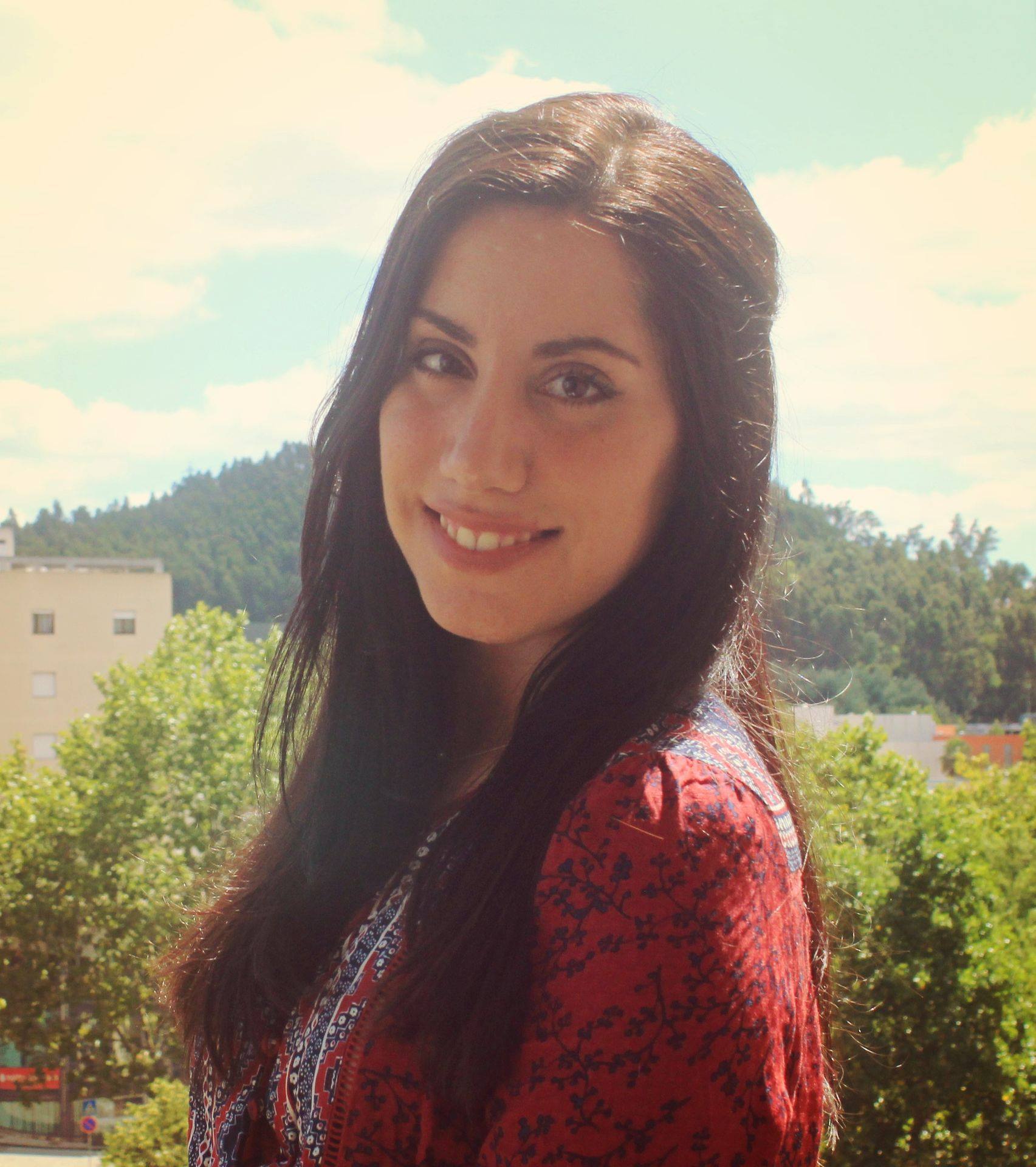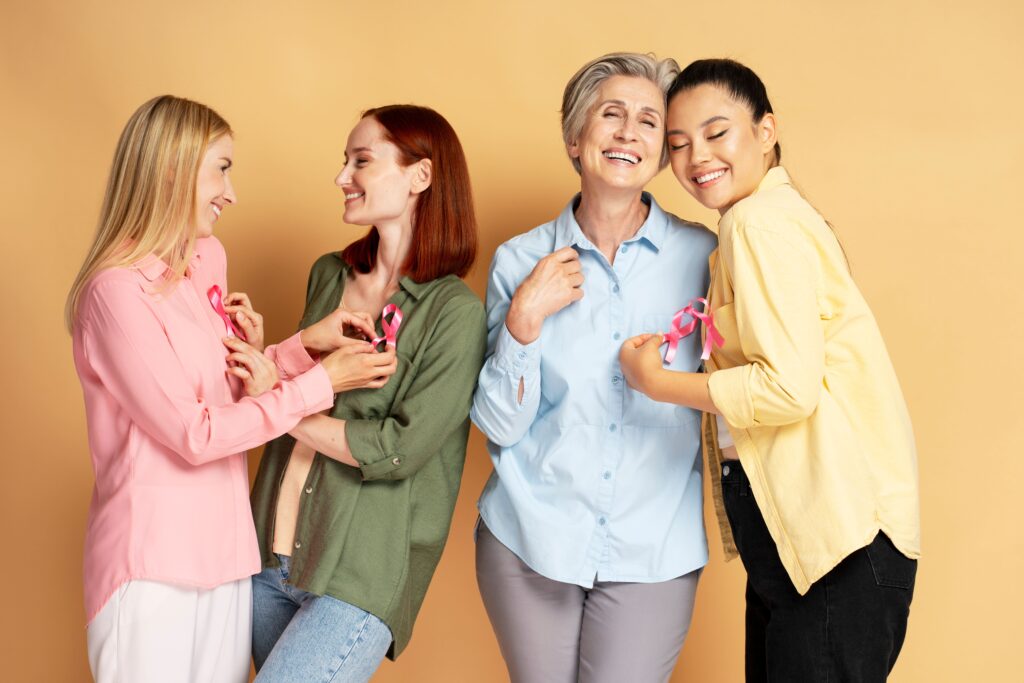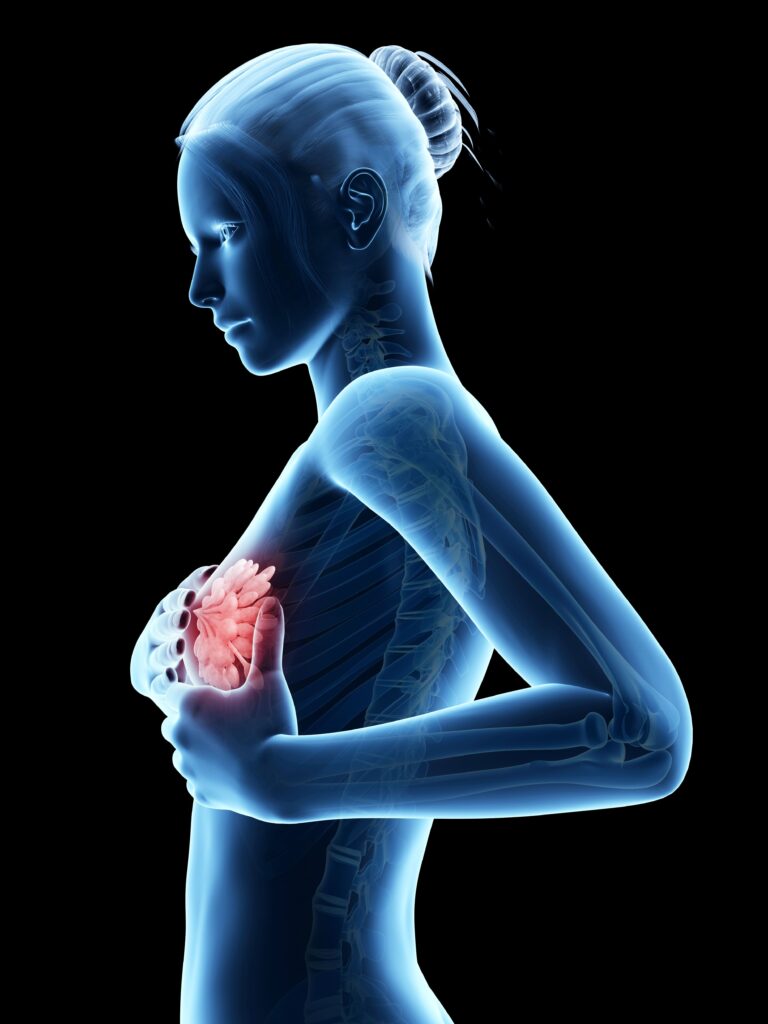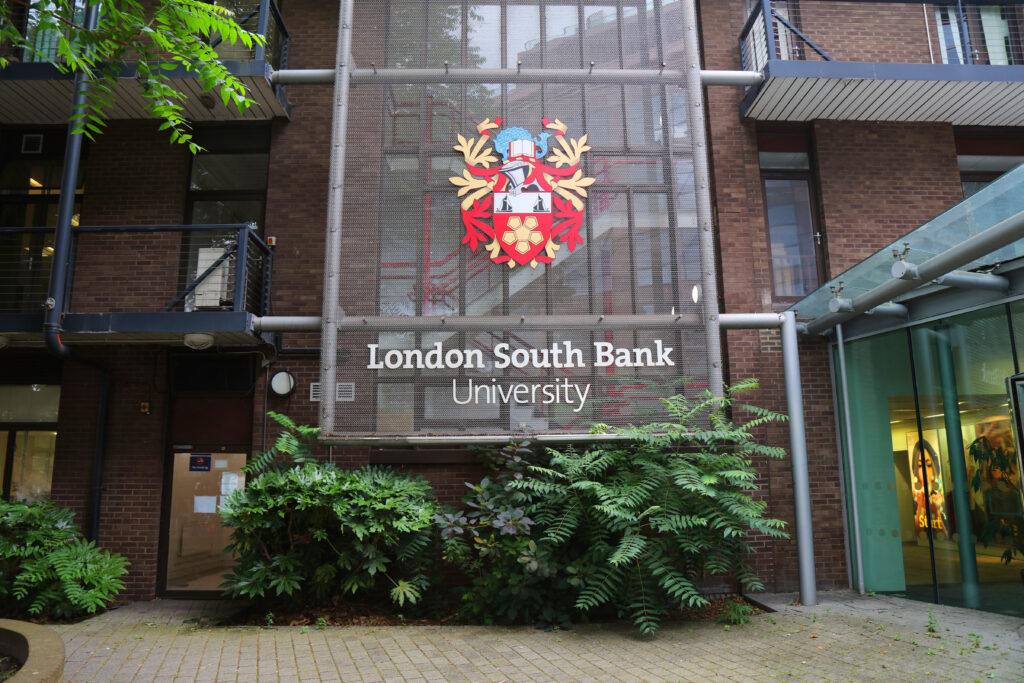Mariana Coutinho, a young Portuguese patient advocate, shares her views and lived experience.
Mariana began her work as a volunteer in 2018, at the Oncology Service of the Paediatric Hospital of Coimbra, Portugal, supporting hospitalized children and adolescents affected by cancer. In 2019, she became a member of the Steering Committee of Youth Cancer Europe, an organization dedicated to raising awareness on issues that negatively impact young cancer patients, such as difficulties in cross-border healthcare, financial discrimination, fertility preservation, dental care, reconstructive surgery, and mental health. She holds a master’s degree in clinical psychology and is currently working as Assistant to the Director of EVITA, one of the MammoScreen Project partners, since 2023. Before that, she also worked as a psychologist at EVITA, supporting people diagnosed with cancer.
Mariana was diagnosed with a rare form of liver sarcoma in 2019 and a second primary cancer diagnosis of breast cancer in 2022. We thank Mariana for this unique opportunity to gather her insight into the hopes and fears of young cancer survivors in a rapidly changing healthcare environment.
MammoScreen (MS): Mariana, from a psychologist’s point of view, can you share what it means to live with hereditary cancer?
Mariana Coutinho (MC): During my internship as a clinical psychologist at EVITA, supporting individuals diagnosed with hereditary cancer and mutation carriers who never developed cancer, it was very clear to me how hereditary cancer can have a significant mental health impact and influence the well-being and overall quality of life of individuals affected by this condition.
People with a family history of cancer often live with a heightened sense of vigilance and anxiety about their own risk, and a confirmed diagnosis of being a mutation carrier can also lead to the anticipation of developing cancer, which can cause high levels of anxiety and depression. Deciding whether to undergo genetic testing and – when obtaining a positive test result – whether to take preventive measures, including very invasive and aggressive procedures such as mastectomies or prophylactic surgeries, can be extremely stressful, and the weight of these decisions can lead to a significant psychological burden. Individuals may even struggle with their body image and sense of identity.
Concerns about future health may also affect major life decisions, such as career choices, family planning, and relationships. Family dynamics are usually also affected. Parents often worry about the possibility of passing the genetic mutation to their children, and may experience guilt. The entire family can be affected, and communication between family members about a high risk for cancer, as well as the possibility of undergoing genetic testing, can be a true challenge.
There is no doubt that the mental health impact of hereditary cancer is profound, necessitating a comprehensive approach to care that addresses both the psychological and physical dimensions of this condition.
MS: Being a cancer survivor, how do you take care of your own health and well-being post-treatment?
MC: Since my first cancer diagnosis, in 2016, I have acquired the habit of practicing daily meditation. Sometimes I incorporate yoga in my practice as well. Most importantly, I try to live a mindful life. While I was doing my master’s degree, which was also the time when I received my first diagnosis, I actually focused my academic studies on the benefits that mindfulness has on the mental health impact of chronic and life-threatening diseases. I usually joke that, without knowing what awaited me, I was studying to save my own life. Having a mindful attitude has been essential for me to deal with the rollercoaster and uncertainty that is living with and beyond cancer. I try to focus on the now and not be overwhelmed by fears about the future. This helps me find peace and stability. Of course, there are days when I feel more anxious or depressed, especially when I must undergo follow-up scans, but usually I try to observe my fear and my experiences without judgment and accept what has happened and is happening with me, as part of being human.
Besides this, being in contact with nature is fundamental for me, and I believe it has had a very important impact on my well-being. I try to escape to the mountains or seaside whenever I can. I also try to exercise regularly and this year I have discovered a passion for running. I try to eat a balanced diet and I feel like the quality of my sleep can really affect my quality of life too. Keeping a healthy lifestyle also gives me the sensation of having a little bit more control of my health and this helps dealing with anxiety about a possible cancer recurrence, for example
MS: How could you benefit from a device like MammoWave?
MC: Due to my previous diagnosis of sarcoma, I need to avoid radiation exposure whenever possible, as it could increase the possibility of a recurrence. Therefore, I can’t have mammography done; instead, I have an annual breast MRI as a follow-up scan. This is the same situation that a lot of women who are mutation carriers also must face, like those who have inherited TP53 mutations, associated with Li-Fraumeni Syndrome.
Because of this, and after hearing so many stories of breast cancer patients that had tumours that were missed during screening exams, I know that I would feel much less anxious if I knew that the device being used for my follow up tests was accurate and reliable, as we hope MammoWave will prove to be. This exam would also be much more comfortable than going through a mammography or breast MRI and less anxiety-inducing because of this.
MS: You are actively collaborating in the MammoScreen project. What is your biggest hope for this project? And biggest fear?
MC: My biggest hope for the MammoScreen project is that it will significantly improve early detection and accurate diagnosis of breast cancer, ultimately saving lives. I envision a future where screenings are more accessible, comfortable and precise, using devices like MammoWave. This could not only lead to earlier interventions and more personalized treatment plans, but also reduce the anxiety and uncertainty that often comes with breast cancer screening.
My biggest fear is that, despite our best efforts, there isn’t equitable access to this advanced tool across diverse populations, due to several disparities in healthcare. I think this is a challenge that needs to be addressed and that we must try to avoid as best as possible.
MS: What advice would you give to other young people who are going through cancer diagnosis and treatment?
MC: I know that every cancer patient’s experience is different, but my main advice would be to find your community, and this can be done mainly through patient organizations, but also on social media. The people I’ve met, people who were going through treatments at the same time as myself or who had already survived cancer, were the ones that kept me afloat. It was so important for me to feel understood and not completely lost in the darkness that surrounded me, they were guiding lights for me and some of them became some of my closest friends. Also, as scary as your circumstances may look, when you enter this “new territory” you will find that you have a resilience and capacity within you that was previously unknown to you, and that you are capable of dealing with whatever life throws at you during this time much better than you could have ever anticipated. I’ve felt this way and I’ve heard other survivors saying the same. You will be ok. As one of my favourite Mindfulness teachers says: “As long as you’re breathing, there’s more right than wrong with you”.





